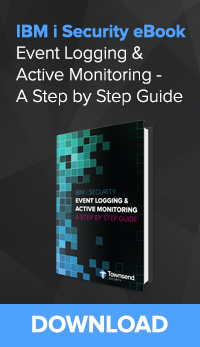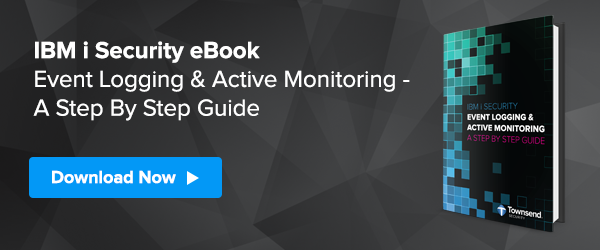We have a lot of Enterprise customers deploying our Alliance LogAgent solution for the IBM i server to send security events to Splunk. On occasion a customer will deploy Alliance LogAgent and send data in the Log Event Extended Format (LEEF) to Splunk. The LEEF format is the preferred log data format for the IBM Security QRadar SIEM, so I’ve always found this a bit puzzling.
 The light finally came on for me this week.
The light finally came on for me this week.
Security event information in syslog format (see RFC 3164) is largely unstructured data. And unstructured data is hard for SIEM solutions to understand. Here is an example from an Apache web server log:
[Wed Oct 11 14:32:52 2000] [error] [client 127.0.0.1] client denied by server configuration: /export/home/live/ap/htdocs/test
An SIEM administrator would have to do a fair amount of work configuring the SIEM to properly understand the importance of this message and take the proper action. If only the data was in some type of normalized format!
It turns out that the IBM Security QRadar LEEF format normalizes the system log information. A message like the above might look something like this in LEEF format:
date=20001011 time=143252 ipAddress=127.0.0.1 violation=client denied severity=5 path=/export/home/live/ap/htdocs/test
With field definitions like “date” and “time” the Splunk SIEM can easily digest the message and the Splunk query tools work great. It is easy to create reports and dashboards with this type of normalized data. The LEEF format is really good about this and Alliance LogAgent supports the LEEF definition.
What most Splunk administrators do not realize is that our Alliance LogAgent solution normalizes all IBM i security events in this type of normalized fashion. That is, this format is the default data format for security events. This is already what Alliance LogAgent does for IBM i security events!
When we started the development of Alliance LogAgent more than 10 years ago we understood at the outset that system log data would be hard for a SIEM to parse. So from the first release of our solution we provided data in this normalized format. Whether you are using Splunk, LogRhythm, Alert Logic, or any other SIEM we make it really easy for the SIEM to digest and act on the information. And forensic, query, and dashboards are easy to create.
So, Splunk users - listen up! The default system log format in Alliance LogAgent is exactly what you need to make Splunk work really well. You can use the LEEF format if you really want to, but you have all of the benefits of normalized data with the default format.
Here at Townsend Security we are vendor neutral when it comes to SIEM solutions. Our customers deploy a wide range of solutions including Splunk, IBM QRadar, LogRhythm, Alert Logic, SolarWinds, McAfee, and lots more. And they can move from one SIEM to another without changing their Alliance LogAgent configurations. We believe that actively monitoring system logs in real time is one of the most important security steps you can take. Early detection of a problem is so much better than trying to remediate a breach after the fact.
Patrick

